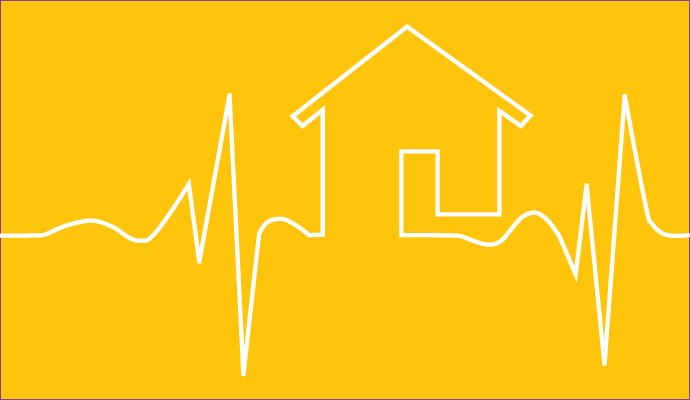Home-Based Cardiac Care Led to Fewer Subsequent Hospitalizations
Just over 14 percent of patients who received home-based cardiac care experienced hospitalization in the following 12 months, compared to 18 percent of patients who received center-based care.

Source: Getty Images
- Home-based cardiac care led to fewer hospitalizations and better clinical outcomes for patients compared to care received in a hospital setting, according to a study published in JAMA Network Open.
Cardiac rehabilitation can help improve health outcomes for people with cardiovascular disease, stable angina, or stable heart failure and people who recently had a myocardial infarction, cardiac surgery, or an elective percutaneous coronary intervention.
However, the majority of eligible patients do not participate in cardiac rehabilitation. Shifting this care from a hospital setting to a home-based setting is one strategy that may encourage participation.
The study reflects data from 2,556 Kaiser Permanente South California patients who participated in cardiac rehabilitation between April 1, 2018, and April 30, 2019.
The study sample was demographically diverse and represented a medically complex population, researchers noted.
Nearly 30 percent of participants were women, 11.3 percent were Asian or Pacific Islander patients, 7.6 percent were Black, and 23.9 percent were Hispanic. In addition, 46.8 percent of participants had a Charlson Comorbidity Index score of 4 or higher, indicating a moderate to high risk of 12-month mortality.
Almost half of the patients (1,241 participants) received home-based cardiac rehabilitation, while the remaining 1,315 received center-based cardiac rehabilitation.
During the 12-month follow-up period, hospitalizations were less common among patients who received the home-based service compared to those who received center-based care. For example, 184 patients in the home-based care cohort experienced an all-cause hospitalization, while 238 patients in the center-based care cohort did.
According to the researchers, previous studies on home-based versus center-based cardiac rehabilitation focused on patient-centered outcomes, such as quality of life, patient satisfaction, or cardiorespiratory fitness.
This study adds to prior research by acknowledging the association between home-based cardiac rehabilitation and subsequent hospitalization.
In addition to fewer hospitalizations, home-based care participants had better program adherence than center-based care participants. Patients in the home-based cohort lived farther from their medical center, indicating that the strategy helped increase access to cardiac rehabilitation for some patients.
The COVID-19 pandemic kickstarted an industry-wide shift to telehealth and home healthcare.
Accountable care organizations (ACOs), in particular, have increased their home-based care offerings. A study from May 2022 found that the most common home-based initiatives among ACOs focused on primary care and care coordination.
However, almost half of the 150 ACOs surveyed said they were concerned about the lack of return on investment that home-based care programs generated.
In its calendar year 2023 Home Health Prospective Payment System proposed rule, CMS announced that it would decrease Medicare payments to home health agencies by 4.2 percent, or $810 million, next year.
The American Hospital Association (AHA) opposed this cut, stating that the update does not accurately reflect the financial challenges home health agencies have faced during the pandemic.
